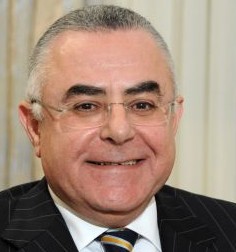Egypt’s current account deficit widened in the July-Sept quarter as imports grew faster than exports and payments to overseas investors increased, the central bank said on Tuesday.
Revenue from tourism, the Suez Canal, exports and remittances from Egyptians living overseas burgeoned from a year earlier, when Egypt was still hurting from the global economic crisis that began in 2008.
Analysts said this indicated that economic activity was picking up.
"Recovery is happening, albeit at a gradual pace. This is evidenced by the gradual pick-up in both exports and imports growth," said Mohamed Rahmy, an economist with Beltone Research.
"But we’re still not seeing the level of growth we were seeing before the crisis occurred."
The current account deficit widened to $802.2 million in the July-Sept quarter from $493.4 million in the same quarter a year earlier, the central bank said.
Revenue from tourism climbed 13 percent year-on-year to $3.7 billion and Suez Canal income rose 13 percent to $1.3 billion.
Imports grew 9.3 percent to $12.73 billion while exports climbed 13 percent to $6.1 billion.
"Non-oil exports in particular accelerated compared to previous quarters, which is a very good indication that the pick-up is happening," Rahmy said.
Private transfers also increased to $3.06 billion from $1.80 billion a year earlier, a sign that remittances from Egyptians working abroad had grown.
The amount the government paid for income on investments jumped to $1.9 billion during the quarter from $0.97 billion a year earlier. This represented payment of interest to foreigners who bought Egyptian government securities, Rahmy said.
Over the last year, Egyptian treasury bills have become attractive to foreign investors, who take advantage of a flood of cheap dollars spawned by US government stimulus measures to buy high-yielding Egyptian government securities.
Foreign investors bought $5.9 billion in treasury bills and bonds, up from only $1.2 billion in July-Sept 2009. This includes $4.7 billion in purchases of treasury bills, the central bank said.
Foreign direct investment (FDI) during the quarter fell to $1.60 billion from $1.73 billion.



